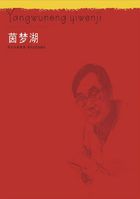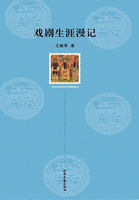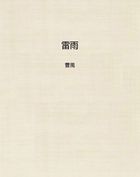"They believe that the Congress of the United States has the power, under the Constitution, to abolish slavery in the District of Columbia, but that the power ought not to be exercised, unless at the request of the people of the District.
"The difference between these opinions and those contained in the said resolutions is their reason for entering this protest.
"DAN STONE, "A. LINCOLN, "Representatives from the County of Sangamon."
TO MISS MARY OWENS.
SPRINGFIELD, May 7, 1837.
MISS MARY S. OWENS.
FRIEND MARY:--I have commenced two letters to send you before this, both of which displeased me before I got half done, and so I tore them up. The first I thought was not serious enough, and the second was on the other extreme. I shall send this, turn out as it may.
This thing of living in Springfield is rather a dull business, after all; at least it is so to me. I am quite as lonesome here as I ever was anywhere in my life. I have been spoken to by but one woman since I have been here, and should not have been by her if she could have avoided it. I 've never been to church yet, and probably shall not be soon. I stay away because I am conscious I should not know how to behave myself.
I am often thinking of what we said about your coming to live at Springfield. I am afraid you would not be satisfied. There is a great deal of flourishing about in carriages here, which it would be your doom to see without sharing it. You would have to be poor, without the means of hiding your poverty. Do you believe you could bear that patiently? Whatever woman may cast her lot with mine, should any ever do so, it is my intention to do all in my power to make her happy and contented; and there is nothing I can imagine that would make me more unhappy than to fail in the effort. I know I should be much happier with you than the way I am, provided I saw no signs of discontent in you. What you have said to me may have been in the way of jest, or I may have misunderstood you. If so, then let it be forgotten; if otherwise, I much wish you would think seriously before you decide. What I have said I will most positively abide by, provided you wish it. My opinion is that you had better not do it. You have not been accustomed to hardship, and it may be more severe than you now imagine. I know you are capable of thinking correctly on any subject, and if you deliberate maturely upon this subject before you decide, then I am willing to abide your decision.
You must write me a good long letter after you get this. You have nothing else to do, and though it might not seem interesting to you after you had written it, it would be a good deal of company to me in this "busy wilderness." Tell your sister I don't want to hear any more about selling out and moving. That gives me the "hypo" whenever I think of it. Yours, etc., LINCOLN TO JOHN BENNETT.
SPRINGFIELD, ILL., Aug. 5, 1837.
JOHN BENNETT, ESQ.
DEAR SIR:-Mr. Edwards tells me you wish to know whether the act to which your own incorporation provision was attached passed into a law. It did. You can organize under the general incorporation law as soon as you choose.
I also tacked a provision onto a fellow's bill to authorize the relocation of the road from Salem down to your town, but I am not certain whether or not the bill passed, neither do I suppose I can ascertain before the law will be published, if it is a law.
Bowling Greene, Bennette Abe? and yourself are appointed to make the change. No news. No excitement except a little about the election of Monday next.
I suppose, of course, our friend Dr. Heney stands no chance in your diggings.
Your friend and humble servant, A. LINCOLN.
TO MARY OWENS.
SPRINGFIELD, Aug. 16, 1837
FRIEND MARY:
You will no doubt think it rather strange that I should write you a letter on the same day on which we parted, and I can only account for it by supposing that seeing you lately makes me think of you more than usual; while at our late meeting we had but few expressions of thoughts. You must know that I cannot see you, or think of you, with entire indifference; and yet it may be that you are mistaken in regard to what my real feelings toward you are.
If I knew you were not, I should not have troubled you with this letter. Perhaps any other man would know enough without information; but I consider it my peculiar right to plead ignorance, and your bounden duty to allow the plea.
I want in all cases to do right; and most particularly so in all cases with women.
I want, at this particular time, more than any thing else to do right with you; and if I knew it would be doing right, as I rather suspect it would, to let you alone I would do it. And, for the purpose of making the matter as plain as possible, I now say that you can drop the subject, dismiss your thoughts (if you ever had any) from me for ever and leave this letter unanswered without calling forth one accusing murmur from me. And I will even go further and say that, if it will add anything to your comfort or peace of mind to do so, it is my sincere wish that you should. Do not understand by this that I wish to cut your acquaintance. I mean no such thing. What I do wish is that our further acquaintance shall depend upon yourself. If such further acquaintance would contribute nothing to your happiness, I am sure it would not to mine. If you feel yourself in any degree bound to me, I am now willing to release you, provided you wish it; while on the other hand I am willing and even anxious to bind you faster if I can be convinced that it will, in any considerable degree, add to your happiness. This, indeed, is the whole question with me. Nothing would make me more miserable than to believe you miserable, nothing more happy than to know you were so.
In what I have now said, I think I cannot be misunderstood; and to make myself understood is the only object of this letter.
If it suits you best not to answer this, farewell. A long life and a merry one attend you. But, if you conclude to write back, speak as plainly as I do. There can neither be harm nor danger in saying to me anything you think, just in the manner you think it. My respects to your sister.
Your friend, LINCOLN















